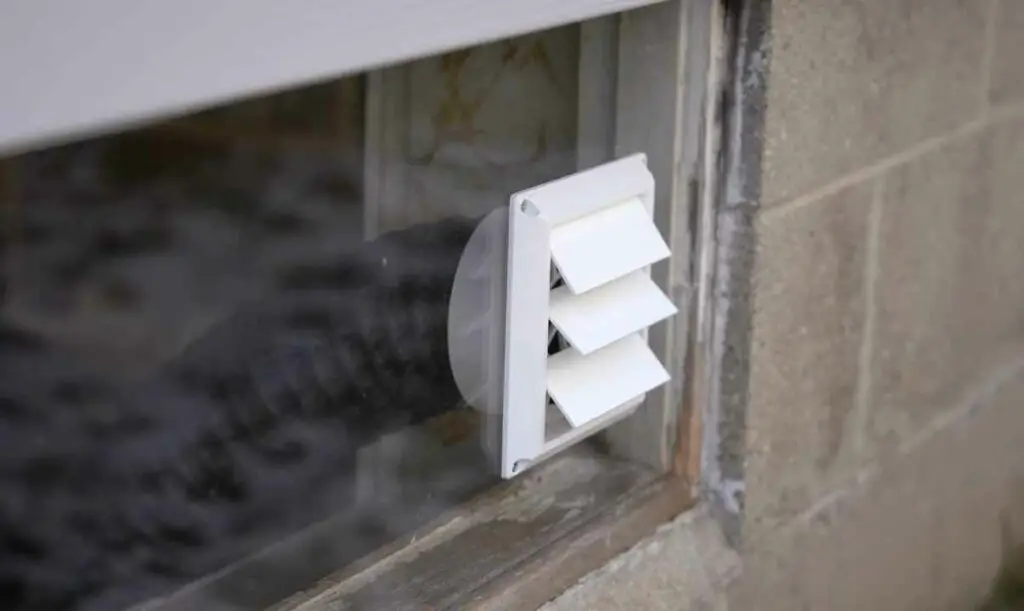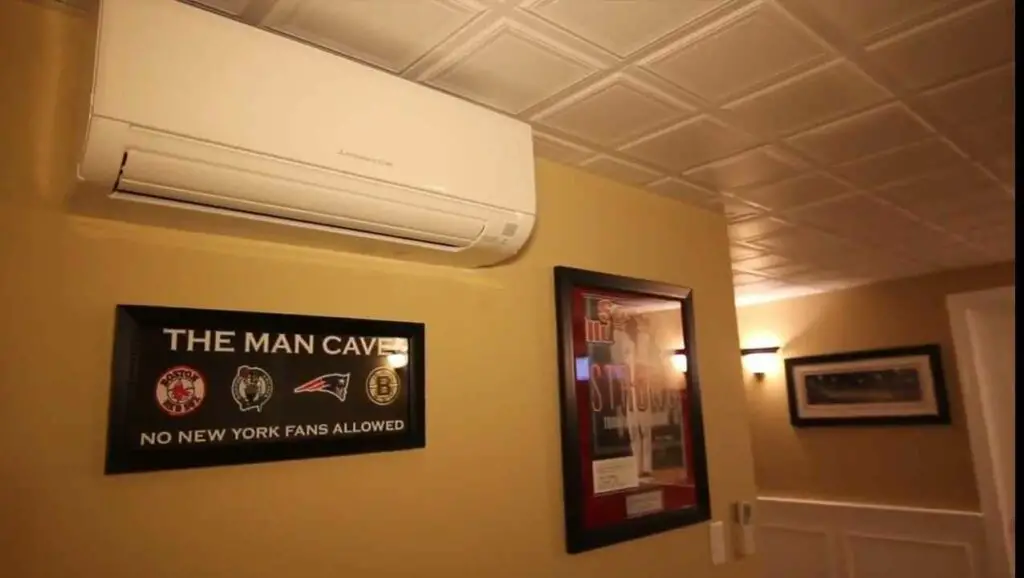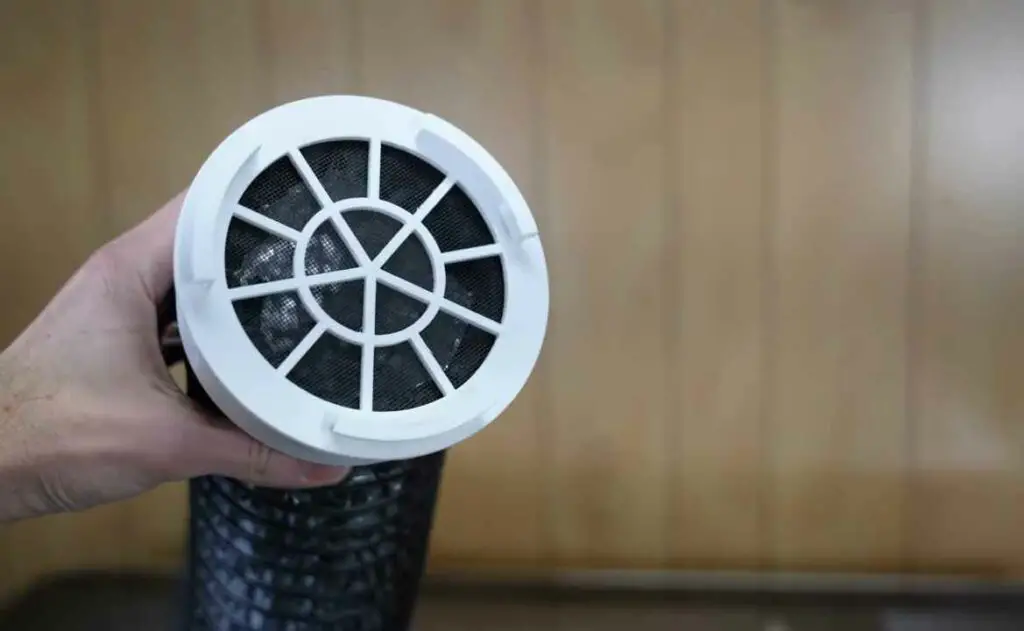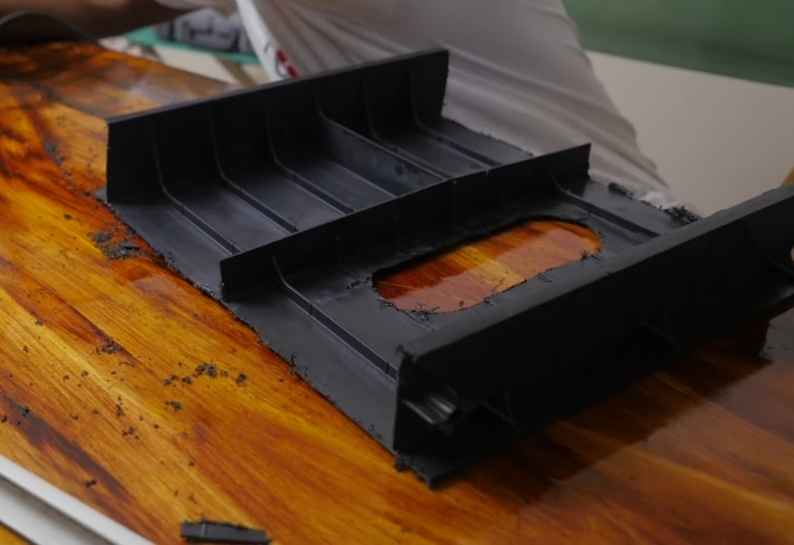An air conditioner basement window is a great way to cool off your basement.
By installing an air conditioner in your basement window, you can keep your basement cooler during the summer months.
Air conditioners work by circulating cool air throughout your home, and the basement is no exception.
Having an air conditioner in your basement window, you can ensure that your basement stays cool and comfortable all summer long.

Can You Put a Window AC in a Basement?
You may be tempted to put a window air conditioner in your basement, but is this really a good idea?
The main reason why you wouldn’t want to put a window air conditioner in your basement is because basements are usually damp and humid.
This combination can lead to mold and mildew growth on the AC unit, which will shorten its lifespan.
Additionally, window AC units are not designed to cool large spaces, so your basement will likely still be quite warm even with the unit running.
Another consideration is that window AC units need to be vented properly in order to work correctly.
This means that you’ll need to cut a hole in your basement wall for the exhaust hose. If not done properly, this could lead to serious moisture and mold problems in your basement.
So, while you may be tempted to put a window air conditioner in your basement, it’s generally not a good idea.
What Kind of Ac Can I Use in a Basement?

If you have a basement that you would like to cool with an air conditioner, there are a few things to consider before purchasing and installing your unit.
First, basements are typically below ground level, so they can be more susceptible to dampness and humidity.
As such, you’ll want to make sure your air conditioner is able to handle these conditions.
Second, depending on the size of your basement, you may need a larger or more powerful AC unit than you would for another room in your home.
Finally, because basements can be cooler than other rooms in your house, you may want to consider a ductless mini-split system, which can provide both heating and cooling for year-round comfort.
Will Ac in Basement Help Humidity?

The answer to this question is yes, but it is important to note that there are other factors that can contribute to humidity in a basement so AC alone may not be enough to eliminate the problem completely.
One of the main reasons that basements can feel humid is because they are often located underground, where the soil has a higher moisture content.
This means that when the temperature outside changes, the walls of your basement will absorb or release moisture depending on whether it is getting warmer or cooler.
In order for your AC unit to be effective at reducing humidity, it needs to be able to lower the temperature of the air inside your home below the dew point.
The dew point is when water vapor in the air starts to condense and form droplets (like when your glass gets foggy after taking a shower).
So, if your AC can keep your basement at a temperature below the dew point, then it will help reduce humidity levels.
Another factor that can affect humidity levels in a basement is how well-ventilated it is.
If there isn’t good airflow, then moist air can become trapped and increase humidity.
Be sure to open windows or use fans whenever possible to allow fresh air into your basement and help keep humidity levels down.
Is a Portable Ac Good for a Basement?

A portable air conditioner can be a great option for cooling a basement, as long as the unit is the right size.
To determine the correct size, you’ll need to know the square footage of the basement.
Once you have that information, you can consult a sizing chart to find the right portable AC unit.
When choosing a portable air conditioner for a basement, it’s also important to consider any special features that might be beneficial.
For example, if your basement is particularly humid, you might want to choose a unit with built-in dehumidification capabilities.
Additionally, some units come with remote controls and timers, which can help manage the temperature of your basement space.
Thank you for that tip. I have the same windows and always tried to get my ac to fit.
You’re welcome! Diane